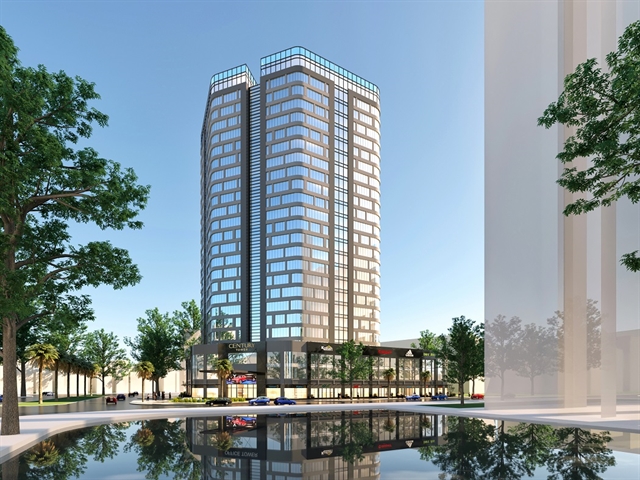The office market in Ha Noi is experiencing many changes amid the COVID-19 pandemic in terms of rental prices, occupational profile and new demands for office spaces, according to Savills Vietnam.

The office market in Ha Noi is experiencing many changes amid the COVID-19 pandemic in terms of rental prices, occupational profile and new demands for office spaces, according to Savills Vietnam.
Grade A rents in Ha Noi are predicted to be stable in the upcoming year. With the Capital Place project in the secondary area entering the market, total grade A supply in Ha Noi reached about 90,000 sq.m in the first half of this year, up 24 per cent year on year while the average rent was up 7 per cent year on year.
As take up has been stable over the past three years, it will take some time for this volume of space to be absorbed. Rents are expected to also remain stable as there are limited prime projects coming until 2023.
In 2021, the Information and Communication Technology (ICT) sector as well as industries such as manufacturing, finance, banking and insurance are expected to grow.
Hoang Nguyet Minh, Director of Commercial Leasing, Savills Ha Noi, said: “With the incredible growth rate of ICT or e-commerce enterprises, the office space for rent may currently remain only 1,000 sq.m but may double in size in the next three years. Therefore, the required space can double or even triple.”
“In the case occupiers want to expand and their business sector has a very good growth rate, landlords need to provide support in terms of spaces or rental packages to help the occupiers further expand, avoiding circumstances where there is not enough space for expansion, meaning occupiers have to look for other suitable space."
Rents are not the main priorities of occupiers, rather they now have more requirements for the location of their headquarters, the quality of the construction, services that will be provided, as well as whether the building space can meet the demand for future expansion, according to Savills.
In Ha Noi, companies now focus more on flexible and people-centric office design, creating space for interaction and collaboration.
In the pre-pandemic period, office design focused on the efficient use of space with high work density. Grade B or C office buildings can have a work density of 4-6 sq.m per staff member whereas it is 10 sq.m per employee in Grade A buildings, Minh said.
However, as most office workers have adapted to working remotely amid the pandemic, it is necessary to reconsider the workspace density to better suit needs. For example, a company with a scale of 100 staff may only need to arrange workspace for 60-70 staff and others can work remotely. Companies may consider other amenities such as pantries or more meeting rooms.
Besides that, “Due to the changes in the way of approaching and constructing offices, investors are also expected to become more flexible with rental packages. Office leasing terms normally last three years,” Minh said.
“However, occupiers recently want longer-term contracts, lasting five to seven years, or even up to 10 years. In addition, the rental price of these contracts is also seeing significant changes.”
For instance, at the moment, occupiers have the tendency to expect a lower rent in the first year, and by the third or fourth year the rent will increase again to make up for the discounted rent at the beginning. The first purpose behind this trend is to support the occupiers during the pandemic. The second is to ensure a long-term rental commitment between occupiers and owners.
Office property is still considered the most stable sector as occupiers often rent and use the space as their representative offices or company branches with a relatively long rental period, Minh said.
Savills also reported that many companies are considering a shift to hybrid working – a mixture of office and remote working.
The pandemic has changed people’s working lives and the office market. Most workers want to be in the office at least some of the time, and most firms want a degree of attendance to ensure mentorship for newer and younger employees and to boost creativity, collaboration and productivity.
However, some roles such as banking will continue to need traditional offices for oversight and scrutiny, which can only take place in an office environment.
Troy Griffiths, Deputy Managing Director of Savills Vietnam, said: “Influences of demand change quickly in a dynamic business environment, such as Viet Nam. With HCM City’s recent rapid growth in finance, insurance, real estate and ICT industries then the formal office occupiers will continue to require highly functional and pleasing space to satisfy the young workforce."
"However, with a recent long lockdown, and with solid growth in small and medium sized enterprise (SME) forecast then the traditional office models will be challenged, thereby promoting more flexible hybrid offices.”
Viet Nam has a strong SME base and a very active start-up environment. These users do not typically take formal office space and so co-working space has grown extensively. As these occupiers’ businesses mature then they will require formal office space and therefore increase demand, that may be best satisfied with hybrid models, Troy said. — VNS





